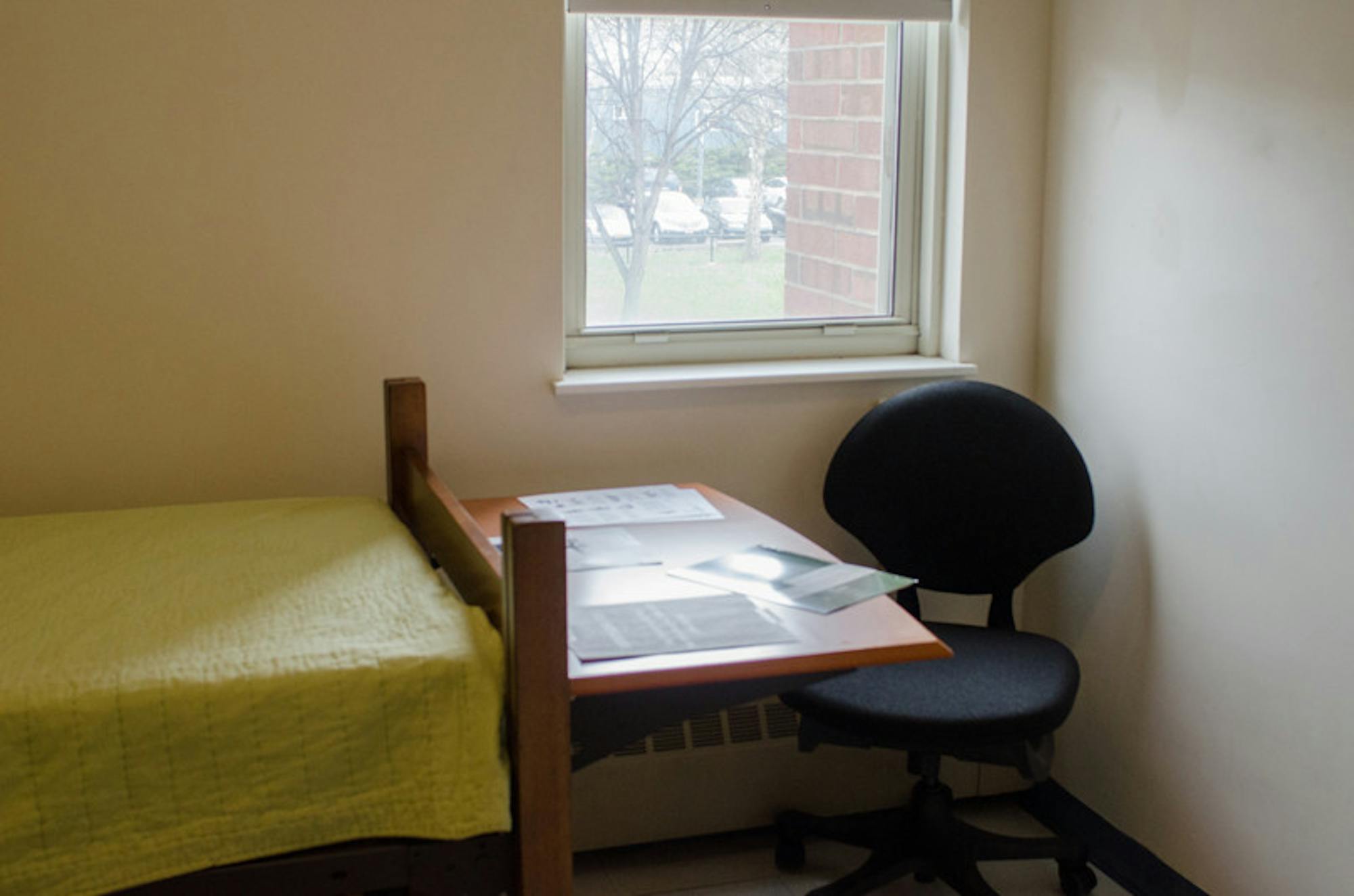Students were invited to participate in the Office of Residential Life and Learning (ResLife) furniture pilot program, which ran from Tuesday, March 29 to Friday, April 1 in Latin Way.
The program, publicized via email, gave students the chance to view and evaluate new furniture options being considered by ResLife to replace currently in-use moveable furniture in residence halls next year.
Residential Facilities Manager Daniela Sousa said student survey responses will play a large role in ResLife's furniture selection.
“If many students didn’t care for the lofted set-up, we are not going to pursue [that option]," she told the Daily in an email. "The purpose of this exercise is to see if students can relate to the pieces and whether they would like to see these items in their residential halls.”
Sousa explained that she and the other program facilitators want to making living spaces more comfortable and conducive to learning.
"We understand the importance of having a get-away or making your home away from home a sanctuary where you can [be relieved of] the pressures of school," she said. "If Facilities can provide more modern, well-constructed pieces that make living in the apartments more favorable to student’s hectic lifestyles, then we feel we have met our goal.”
Participating students walked through Latin Way suite C340 — where the furniture was displayed in museum fashion — and indicated their opinions on the various selections according to a ranking scale of “Excellent,” “Very good,” “Good,” “Fair” and “Poor.” On display were bed systems, desks and coffee and end tables from two furniture suppliers, New England Woodcraft and Sauder Education.
Even though furniture is replaced, repaired and purchased for residence halls every summer, this year's pilot program represents a more drastic change, Sousa said.
“We want to create standards with counter-height tabletops with matching stools, coffee tables in the living room and provide more storage opportunity in the bedrooms,” she said. “Our goal is to make the suites feel more like home, which should directly correlate to students having a greater appreciation for living on campus.”
First-year Elisabeth Frick, who participated in the feedback program, said she appreciated the opportunity to view the furniture since students often spend a lot of time in their rooms.
“The display in Latin Way allows for students to essentially choose their own surroundings," she said. "It’s really cool that something I choose today could possibly be in my own room next year.”
The new furniture chosen through the pilot program will impact the approximately two-thirds of students living in campus-affiliated housing, according to 2014 data from US News & World Report. Back in 2014, there were around 3,300 students living on campus, according to a Sept. 15, 2014 email from ResLife Director Yolanda King.
King explained that the pilot program aims to improve residence halls for students living on campus.
"Our departments are working collaboratively to provide resources and services that will continue to enhance the students' residential experience,” King told the Daily in an email.
Students evaluate residence furniture through pilot program

Furniture on display in Latin Way as part of a pilot program through the Office of Residential Life and Learning.





